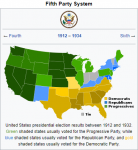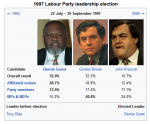
Reza Strelokov (born Reza Khan) was born in an unknown village in the Mazandaran Province of the Persian Empire in 1878, to Major Abbas-Ali Khan and Noush-Afarin, a Muslim Georgian immigrant. When his father suddenly died when Reza himself was barely 8 months old, he and his mother would move back to Georgia, to live with his extended family. As a marginalized but literate citizen of the Russian Empire, Reza would engage in left-wing politics by joining the Menshevik faction of the Russian Social Democratic Labour Party. During the 1905 Revolution, Reza would later partake in several terrorist activities, encouraging violence against the Cossacks amongst Muslim communities and bombing vital pieces of infrastructure. However, the crackdown of the rebellion and the liberalization of the Caucuses under Count Vorontsov-Dashkov caused the Menshevik leadership to put a halt to the violence.
Upset at the Menshevik’s cooperation with the authorities, Reza and a group of followers would join the more radical Bolshevik faction, which continued to advocate for insurrection against the Tsar. As one of the few Bolsheviks leaders in the region, Reza would later become the Georgian representative to the Bolshevik leadership, earning him the favor of Vladimir Lenin. During this time, Reza Khan was also involved in the assassination of several Tsarist officials and informants, where his sharpshooting abilities earned him the nickname of Strelok, meaning shooter in Russian. Reza would later adopt this as nom de plume for his multiple publications advocating for guerrilla warfare.
During the Russian Civil War, Reza would rise quickly in party ranks, overseeing the mobilization of workers and the success of communist partisans as his role as Commissar of the Council of Labor and Defence. During this time, Reza would also come into conflict with the Commissar of Military Affairs Leon Trotsky, whom he disliked due to his abrasive personality and lack of military skill. Following the eventual Soviet victory, his wife would later give birth to Vladimir Rezanovich Strelokov, whom they had named after Vladimir Lenin. However, the Polish-Soviet war later broke out and Reza would oversee a massive re-organization of the Polish Red Army to increase the morale and quality of communist partisans, eventually assisting Mikhail Tukhachevsky’s capture of Warsaw.
The collapse of Pilsudski's administration and the subsequent formation of the Soviet Republic of Poland and Lithuania had transformed Reza and Trotsky into two of the most influential people in Moscow. As Lenin’s health began to fail in the following years, a significant rivalry formed between the two as the question of Lenin’s successor became increasingly prevalent. In the end, Reza’s popularity within the Party and the Red Army,w which allowed him to weaken the position of Trotsky’s “Left Opposition” within the government, culminating in his subsequent election as Chairman of the Council of People's Commissars. After purging the Left Opposition through the form of imprisonment, exile, and executions, Reza’s position as leader would be universally assured.
However, the rapid remilitarization of the Weimar Republic continued to threaten the Soviet global position, but this issue would be resolved after Germany fell into utter chaos during the Great Crash of 1930. During the Depression, the NEP’s position within the Soviet economy would be greatly revamped as small private enterprises would be effectively monopolized under the state-backed monopolies to ensure the mass industrialization of the nation. The liquidation of the kulaks and the subsequent famine in Ukraine would give rise to many crypto-nationalist Ukrainian sentiments. To resolve this, Reza would oversee the mass deportations of Ukrainians into Siberia and Central Asia, while dividing the Ruthenian, Donbass, and Crimean Republics from the Ukrainian SSR.
Subsequently, campaigns against financially successful or rebellious minorities took place, as Karelians, Abkhazians, Chechens, and Koryo-saram were targeted in the coming years. In the end, Reza’s Great Terror would ultimately centralize the economy around an increasingly exclusive system of state enterprises, of which the Red Army was a major beneficiary. This would be due to the fact that Reza had often relied on the Red Army to enforce his rule, more so than the newly-disbanded Cheka or the Party itself, as he would be later sworn in as the Generalissimus of the Soviet Union. In the eyes of the west, Reza’s Red Army would be seen as a massive threat to international peace, only rivaled by the German People’s Republic under the zealous command of Joseph Goebbels. Eventually, these fears would ring true during the Danube Spring, where thousands of revolutionaries rose up from Bucharest to Vienna, causing the German and Soviet armies to intervene and place much of Eastern Europe under communist rule. As the conquests of "The Red Genghis" raised global tensions, the capitalist world began to covertly back the Japanese Empire’s warpath across Asia.
While Japan’s dominance over China was assured, the Soviet annexations of Uyghurstan and Mongolia had risen much alarm, allowing for the rise of Sadao Araki, the chief advocate for a “Strike North” against Bolshevism. As the bombing of Vladivostok sent shockwaves across the Middle East, the underequipped armies of the Co-Prosperity Sphere began a massive invasion of the Soviet Union. While unflinching in their goal, the Japanese would later fall to the Red Army and its international allies, reducing the once-great Empire into a Soviet puppet. As cheers of victory ran throughout the nation and Strelokov’s own cult of personality had reached its absolute peak, his last act as Premier would be to establish the office of People’s Vodhz, of which he was its first officeholder. However, Strelokov would only live to celebrate this victory for a single year, dying from a heart attack on 26 July 1944. Soon after his sudden death, the party leadership would be quickly imprisoned at the hands of the Red Army, as they were pressured into electing Mikhail Tukhachevsky, The Red Napoleon as the new Soviet Premier.
The legacy of Reza Strelokov remains controversial to this day as his twenty-year regime oversaw one of the highest death tolls of any dictatorship in modern history. Negative interpretations of the first Vozhd being a belligerent warmonger, an avaricious mass-murderer, and a backwards Aryan savage would become somewhat common both during and after his reign over the Soviet Union. Despite this, Reza’s legacy as the people’s defender against imperialism and subversive infiltration remains common throughout much of the communist world. In addition, programs into mass industrialization, modernized defense systems, eugenics research, and the Latinization of the Soviet languages continue to be applauded to this day. However, the most prominent piece in Reza’s legacy takes the form of his firstborn son, Vladimir Strelokov, the last man to rule the Soviet Union.



